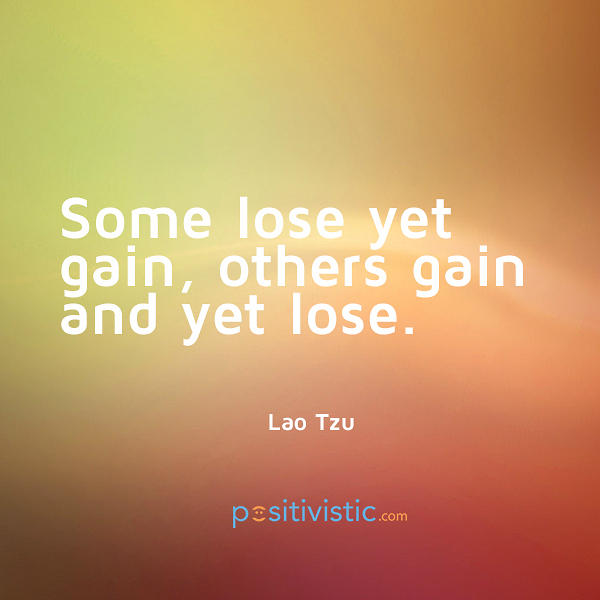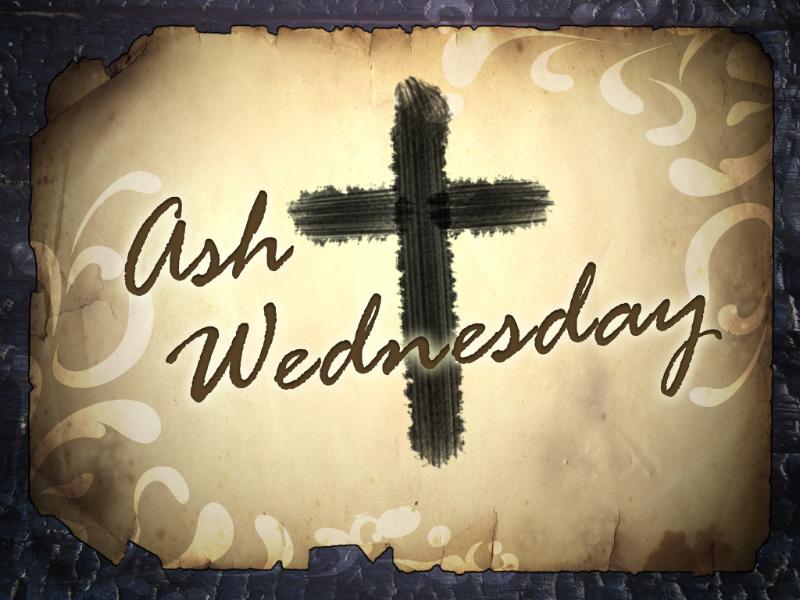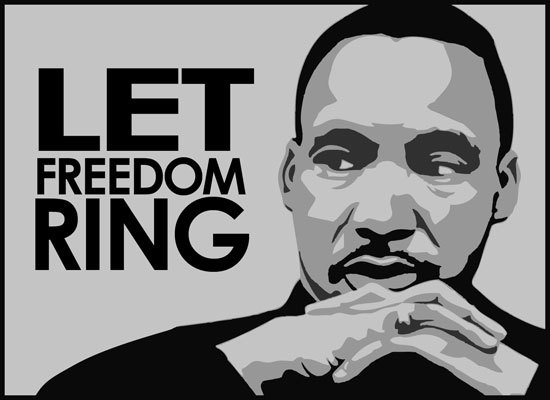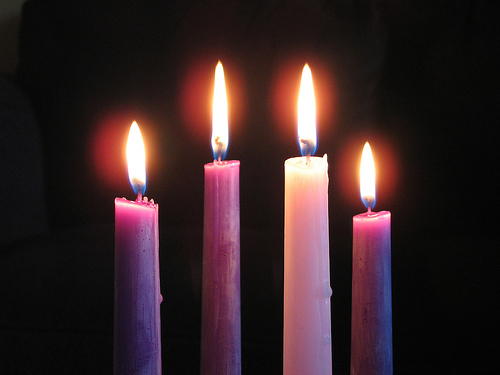Reflections for Lent 3: Themes of Ten Commandments, holy anger, body as spiritual temple
Blessing the Body (excerpt) — Jan Richardson
This blessing takes
one look at you
and all it can say is
holy.
Holy hands.
Holy face.
Holy feet.
Holy everything
in between.
Holy even in pain.
Holy even when weary.
In brokenness, holy.
In shame, holy still.
Holy in delight.
Holy in distress.
Holy when being born.
Holy when we lay it down
at the hour of our death …
Being a body is a spiritual discipline … living fully and gratefully as a body. — Rowan Williams
Know then that the body is merely a garment. Go seek the wearer, not the cloak. — Rumi
Reflections on Lent 2: Genesis 17 & Mark 8: names, identities, life, self.
— Song of Myself, Walt Whitman
your heart must forget about shame and dignity.
You are God’s lover, yet you worry what people are saying.
― Jalaluddin Mevlana Rumi
Giving Up a Life, a Self, an Identity: Themes from Mark 8
Do not lose yourself in the past. Do not lose yourself in the future. Do not get caught in your anger, worries, or fears. Come back to the present moment, and touch life deeply. This is mindfulness. ― Thich Nhat Hanh, The Heart of the Buddha’s Teaching: Transforming Suffering into Peace, Joy, and Liberation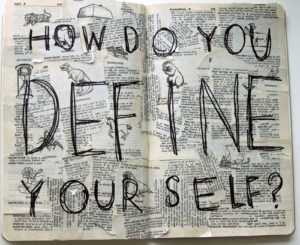 We begin to find and become ourselves when we notice how we are already found, already truly, entirely, wildly, messily, marvelously who we were born to be. The only problem is that there is also so much other stuff, typically fixations with how people perceive us, how to get more of the things that we think will make us happy, and with keeping our weight down. So the real issue is how do we gently stop being who we aren’t? … Here’s how I became myself: mess, failure, mistakes, disappointments, and extensive reading; limbo, indecision, setbacks, addiction, public embarrassment, and endless conversations with my best women friends; the loss of people without whom I could not live, the loss of pets that left me reeling, dizzying betrayals but much greater loyalty, and overall, choosing as my motto William Blake’s line that we are here to learn to endure the beams of love. — Anne Lamott, “Becoming the Person You Were Meant to Be: Where to Start” O, The Oprah Magazine
We begin to find and become ourselves when we notice how we are already found, already truly, entirely, wildly, messily, marvelously who we were born to be. The only problem is that there is also so much other stuff, typically fixations with how people perceive us, how to get more of the things that we think will make us happy, and with keeping our weight down. So the real issue is how do we gently stop being who we aren’t? … Here’s how I became myself: mess, failure, mistakes, disappointments, and extensive reading; limbo, indecision, setbacks, addiction, public embarrassment, and endless conversations with my best women friends; the loss of people without whom I could not live, the loss of pets that left me reeling, dizzying betrayals but much greater loyalty, and overall, choosing as my motto William Blake’s line that we are here to learn to endure the beams of love. — Anne Lamott, “Becoming the Person You Were Meant to Be: Where to Start” O, The Oprah Magazine
Continue reading “Reflections on Lent 2: Genesis 17 & Mark 8: names, identities, life, self.”
Reflections on ashes and dust: themes from Ash Wednesday & Lent
Ash Wednesday is the starting point of Lent. We are marked with ashes as we begin the season. We go from feasting to a season of fasting, praying, and giving.
Or perhaps we can think of Lent as a season of personal training, of discipline and preparation, to return to spiritual fitness. It’s a time when, through confession, we admit and wrestle with our issues, vulnerabilities and weaknesses … and get to know ourselves better. We seek healing and balance.
This is also an opportunity to understand that we are beloved for whom we are: messy and imperfect and broken. Just as we are beloved for whom we may become. Because the gift of this season, ultimately, is grace. We can prepare, we can focus … yet we cannot earn the boundless love toward which we are reaching. It is simply offered to us, regardless of how perfect or imperfect we are. Just because.
Ashes symbolize mortality, as well as humility and contrition. The proudest members of society, in many faith traditions, don sackcloth and wear ashes as signs of humility, to express sorrow, or to demonstrate a desire for reconciliation and forgiveness. Ashes represent, like “dust to dust”, our elemental origins and remind us that our bodies will return to the earth. Within our faith, we also believe that while our bodies are formed from organic materials, our living selves are filled up with and energized by Breath, Wind, or Holy Spirit, which animates life and connects all of us.
Traditionally, people receive ashes today, Ash Wednesday, as a smudge or cross on the forehead. We come to this season in a messy way, wearing our imperfection on our faces. Messy, sad, sorry, tired, angry, grateful, hopeful, happy, curious … we enter into this time of preparation, on the journey toward Easter.
Continue reading “Reflections on ashes and dust: themes from Ash Wednesday & Lent”
Reflections from Psalm 139 & MLK Weekend: Being Human
Pink Moon — the Pond (excerpt) — Mary Oliver
… You walk down to the shore.
Your coming stills them,
but little by little the silence lifts
until song is everywhere
and your soul rises from your bones
and strides out over the water.
It is a crazy thing to do —
for no one can live like that,
floating around in the darkness
over the gauzy water.
Left on the shore your bones
keep shouting come back!
But your soul won’t listen;
in the distance it is unfolding
like a pair of wings, it is sparking
like hot wires. So,
like a good friend,
you decide to follow.
You step off the shore
and plummet to your knees …
and now you are caught …
And that’s when it happens —
you see everything
through their eyes,
their joy, their necessity;
… And that’s when you know
you will live whether you will or not,
one way or another,
because everything is everything else,
one long muscle.
It’s no more mysterious than that.
So you relax, you don’t fight it anymore,
… in the moonlight, as it says
yes.
On Being Human
I wish I could show you, when you are lonely or in darkness, the astonishing Light of your own Being. — Hafiz
Challenging the meaning of life is the truest expression of being human. — Victor Frankl
Our existence was for the white man’s comfort and well-being; we had to accept being deprived of just being human. — Rosa Parks
Who am I? They mock me, these lonely questions of mine. Whoever I am, thou knowest, O [God], I am thine. — Deitrich Bonhoeffer
We have a tendency to think in terms of doing and not in terms of being. … Our time is first of all for us to be. To be what? To be alive, to be peaceful, to be joyful, to be loving. ― Thich Nhat Hanh, The Art of Living
You’ve got to keep asserting the complexity and the originality of life, and the multiplicity of it, and the facets of it. This is about being a complex human being in the world, not about finding a villain. This is no time for anything else than the best that you’ve got. ― Toni Morrison
Well, there is good news, and that is why they call it the gospel. The news is not that we are worse than we think, it is that we are better than we think, and better than we deserve to be. Why? Because at the very bottom of the whole enterprise is the indisputable fact that we are created, made, formed, invented, patented in the image of goodness itself … People … cannot take away from you the fact that you are a child of God and bear the impression of God in your very soul. — Peter Gomes
More than one writer calls Psalm 139 a creation psalm, but not one about the vast mysteries of the heavens and earth or even the marvelous workings of nature around us. This creation is God’s own ongoing work in bringing the human person to fullness of life, unwrapping the mystery of us and loving us all the while. — Kathryn Matthews
Just Imagine
Imagination opens up possibility, but sometimes we do not dare to imagine something as beautiful as God. — Nanette Sawyer, (in The Hyphenateds)
We live in a world where bad stories are told, stories that teach us life doesn’t mean anything and that humanity has no great purpose. It’s a good calling, then, to speak a better story. How brightly a better story shines. How easily the world looks to it in wonder. How grateful we are to hear these stories, and how happy it makes us to repeat them. — Donald Miller, A Million Miles in a Thousand Years: What I Learned While Editing My Life
What a stunning vocation for the church, to stand free and hope-filled in a world gone fearful – and to think, imagine, dream, vision a future that God will yet enact. — Walter Brueggemann
From wonder into wonder existence opens. — Lao Tzu
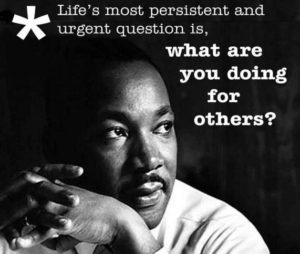
From every mountainside, let freedom ring. When we let freedom ring, when we let it ring from every village and every hamlet, from every state and every city, we will be able to speed up that day when all of God’s children, black men and white men, Jews and Gentiles, Protestants and Catholics, will be able to join hands and sing in the words of the old Negro spiritual, ‘Free at last! Free at last! Thank God Almighty, we are free at last!’ — Martin Luther King Jr., ‘I Have a Dream’ speech
On this day we commemorate Dr. King’s great dream of a vibrant, multiracial nation united in justice, peace and reconciliation; a nation that has a place at the table for children of every race and room at the inn for every needy child. We are called on this holiday, not merely to honor, but to celebrate the values of equality, tolerance and interracial sister and brotherhood he so compellingly expressed in his great dream for America. — Coretta Scott King
Commentary about the significance of this holiday from New York Times contributor Chris Lebron: What, To the Black American, Is Martin Luther King Jr. Day?
It’s easy if you try
No hell below us
Above us only skyImagine all the people living for today
It isn’t hard to do
Nothing to kill or die for
And no religion too
Imagine all the people living life in peace, you
But I’m not the only one
I hope some day you’ll join us
And the world will be as one
I wonder if you can
No need for greed or hunger
A brotherhood of man
Imagine all the people sharing all the world, you
But I’m not the only one
I hope some day you’ll join us
And the world will be as one
Meditations on themes of Advent week 4: Love
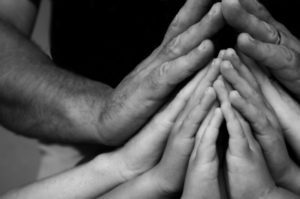 Below we offer the 8 categories of love as understood through a Greek lens: eros (erotic love), philia (friendship), agape (universal love), ludus (playful love), storge (family-kinship love), philautia (healthy self-love), mania (obsessive love), pragma (mature, enduring love). From which forms of love do you draw your strength and connection?
Below we offer the 8 categories of love as understood through a Greek lens: eros (erotic love), philia (friendship), agape (universal love), ludus (playful love), storge (family-kinship love), philautia (healthy self-love), mania (obsessive love), pragma (mature, enduring love). From which forms of love do you draw your strength and connection?
All You Need Is Love — Beatles lyrics
All You Need Is Love
Love, love, love … Love, love, love … Love, love, love
There’s nothing you can do that can’t be done
Nothing you can sing that can’t be sung
Nothing you can say but you can learn how to play the game
It’s easy
Nothing you can make that can’t be made
No one you can save that can’t be saved
Nothing you can do but you can learn how to be you in time
It’s easy
All you need is love … All you need is love
All you need is love, love … Love is all you need
Love, love, love … Love, love, love … Love, love, love
… Nothing you can know that isn’t known
Nothing you can see that isn’t shown
Nowhere you can be that isn’t where you’re meant to be
It’s easy
All you need is love … All you need is love
All you need is love, love … Love is all you need …
Friendship … considered a love between equals. — Mateo Sol
You don’t love someone because they’re perfect, you love them in spite of the fact that they’re not. ― Jodi Picoult, My Sister’s Keeper
Friends show their love in times of trouble, not in happiness. —Euripides
We sometimes choose the most locked up, dark versions of the story, but what a good friend does is turn on the lights, open the window, and remind us that there are a whole lot of ways to tell the same story. ― Shauna Niequist, Bittersweet
… friendship is grounded in a feeling that you know exactly who will be there for you when you need something, no matter what or when. — Simon Sinek
One of the most beautiful qualities of true friendship is to understand and to be understood. — Lucius Annaeus Seneca
Love is the only force capable of transforming an enemy into a friend. — Martin Luther King, Jr.
Don’t walk behind me; I may not lead. Don’t walk in front of me; I may not follow. Just walk beside me and be my friend. — Albert Camus
There’s a kinship among men who have sat by a dying fire and measured the worth of their life by it. ― William Golding, The Spire
There is on the earth no institution which Friendship has established; it is not taught by any religion; no scripture contains its maxims. It has no temple nor even a solitary column … However, out fates at least are social. ― Henry David Thoreau, Walden and Other Writings
To be with old friends is very warming and comforting. — Ian Ziering
In the outworks of our lives, we were almost strangers, but we shared a certain outlook on human life and human destiny, which, from the very first, made a bond of extreme strength . . . At our very first meeting, we talked with continually increasing intimacy. We seemed to sink through layer after layer of what was superficial, till gradually both reached the central fire … ― Bertrand Russell, Portraits From Memory and Other Essays
EROS
Eros is sexual or passionate love, and is the type most akin to our modern construct of romantic love. — Neel Burton, Psychology Today
The Greeks, it will be recalled, regarded Eros, the god of love, as the eldest of the gods; but also as the youngest, born fresh and dewy-eyed in every living heart. — Joseph Campbell
Eros will have naked bodies; friendship naked personalities. — C.S. Lewis
Eros is an issue of boundaries. He exists because certain boundaries do. In the interval between reach and grasp, between glance and counterglance, between ‘I love you’ and ‘I love you too,’ the absent presence of desire comes alive. But the boundaries of time and glance and I love you are only aftershocks of the main, inevitable boundary that creates Eros: the boundary of flesh and self between you and me. And it is only, suddenly, at the moment when I would dissolve that boundary, I realize I never can. — Anne Carson
Eros seizes and shakes my very soul like the wind on the mountain shaking ancient oaks. — Sappho
You can’t deny Eros. Eros will strike, like lightning. Our human defenses are frail, ludicrous. Like plasterboard houses in a hurricane. Your triumph is in perfect submission. And the god of Eros will flow through you, as Lawrence says, in the ‘perfect obliteration of blood consciousness. — Joyce Carol Oates
Ludus is playful or uncommitted love. — Neel Burton, Psychology Today
To be running breathlessly, but not yet arrived, is itself delightful, a suspended moment of living hope. — Anne Carson
Don’t ever think I fell for you, or fell over you. I didn’t fall in love, I rose in it. ― Toni Morrison, Jazz
on my mind
before reaching
for my waist
my hips
or my lips
he didn’t call me
beautiful first
he called me
exquisite
– how he touches me
― Rupi Kaur, Milk and Honey
Pragma is a love that has aged, matured and developed over time. It is beyond the physical, it has transcended the casual, and it is a unique harmony that has formed over time. — Mateo Sol
To fall in love is easy, even to remain in it is not difficult; our human loneliness is cause enough. But it is a hard quest worth making to find a comrade through whose steady presence one becomes steadily the person one desires to be. — Anna Strong
Love is friendship that has caught fire. It is quiet understanding, mutual confidence, sharing and forgiving. It is loyalty through good and bad times. It settles for less than perfection and makes allowances for human weaknesses. — Ann Landers
She is a friend of my mind. She gather me, man. The pieces I am, she gather them and give them back to me in all the right order. ― Toni Morrison, Beloved
Being deeply loved by someone gives you strength, while loving someone deeply gives you courage. — Lao-Tzu
A single rose can be my garden… a single friend, my world. — Leo Buscaglia
The best love is the kind that awakens the soul; that makes us reach for more, that plants the fire in our hearts and brings peace to our minds. That’s what I hope to give you forever. — Nicholas Sparks, The Notebook
Love is not a mold that makes two people the same person. Love is the dream that enables both of us to be our own best person—together. Love knows no one can fill up in us what we lack in ourselves. But coming to live what we know about love for the sake of others, as well as for our self, is the one thing that can possibly stop the restless sleep that comes with loneliness. — Joan Chittister, Between the Dark and the Daylight
Storge is primarily to do with kinship and familiarity. Storge is a natural form of affection that often flows between parents and … children … can even be found among childhood friends … — Mateo Sol
It’s a funny thing about mothers and fathers. Even when their own child is the most disgusting little blister you could ever imagine, they still think that he or she is wonderful. — Roald Dahl
Without warning he had become witness to something that stretched back through the eons, ties both elastic and enduring, surpassing death, surpassing life. She was his child. It was as simple as that and that complex. ― Kim Harrison, Into the Woods
You don’t have to have anything in common with people you’ve known since you were five. With old friends, you’ve got your whole life in common. — Lyle Lovett
So it was in Botswana, almost everywhere; ties of kinship, no matter how attenuated by distance or time, linked one person to another, weaving across the country a human blanket of love and community. And in the fibres of that blanket there were threads of obligation that meant that one could not ignore the claims of others. Nobody should starve; nobody should feel that they were outsiders; nobody should be alone in their sadness. ― Alexander McCall Smith
Cousins by chance, friends by choice. — Proverb
I must get my soul back from you; I am killing my flesh without it. ― Sylvia Plath, The Unabridged Journals of Sylvia Plath
Lolita, light of my life, fire of my loins. My sin, my soul. ― Vladimir Nabokov, Lolita
I love you. I hate you. I like you. I hate you. I love you. I think you’re stupid. I think you’re a loser. I think you’re wonderful. I want to be with you. I don’t want to be with you. I would never date you. I hate you. I love you…..I think the madness started the moment we met and you shook my hand. Did you have a disease or something? ― Shannon L. Alder
Do love. Don’t just think love, say love, have faith in love, or believe that God is love. Give up the idea that your ideas alone can save you. If you know the right words, then bring those words to life by giving them your own flesh. Put them into practice. Do love, and you will live. — Barbara Brown Taylor
Darkness cannot drive out darkness; only light can do that. Hate cannot drive out hate; only love can do that. — Martin Luther King Jr.
Love is or it ain’t. Thin love ain’t love at all. ― Toni Morrison, Beloved
When the power of love overcomes the love of power, the world will know peace.― Jimi Hendrix
The greatest happiness of life is the conviction that we are loved; loved for ourselves, or rather, loved in spite of ourselves. — Victor Hugo
“Not all of us can do great things. But we can do small things with great love.” AND “I believe God loves the world through us—through you and me.” — St Mother Teresa
There are no strangers here; Only friends you haven’t yet met. — William Butler Yeats
Many can give money to those in need, but to personally serve the needy readily, out of love, and in a fraternal spirit, requires a truly great soul. — Saint John Chrysostom
Love is not really an action that you do. Love is what and who you are, in your deepest essence. Love is a place that already exists inside of you, but is also greater than you. That’s the paradox. It’s within you and yet beyond you. This creates a sense of abundance and more-than-enoughness, which is precisely the satisfaction and deep peace of the True Self. You know you’ve found a well that will never go dry, as Jesus says (see John 4:13-14). Your True Self, God’s Love in you, cannot be exhausted. — Richard Rohr
All friendly feelings for others are an extension of a man’s feelings for himself. — Aristotle
How you love yourself is how you teach others to love you. ― Rupi Kaur, Milk and Honey
It’s all about falling in love with yourself and sharing that love with someone who appreciates you, rather than looking for love to compensate for a self love deficit. ― Eartha Kitt
The most terrifying thing is to accept oneself completely. ― Carl Jung
The first step is to come home to ourselves. You don’t need to become a Buddha. You need to become yourself. — Thich Nhat Hanh
— Joan Chittister
There is a magnet in a seeker’s heart whose true north is God. It bends toward the Voice of God with the ear of the heart and, like sunflowers in the sun, turns all of life toward the living of the Word.
This listening heart is pure of pride and free of arrogance. It seeks wisdom—
everywhere, at all times— and knows wisdom by the way it echoes the call of the scriptures.
The compass for God implanted in the seeker’s heart stretches toward truth and signals the way to justice.
It is attuned to the cries of the poor and oppressed with a timbre that allows no interruption, no smothering of the Voice of God on their behalf.
These seekers hear the voice of God in the cry of the poor and oppressed, and they “immediately put aside their own concerns” and follow God’s call in their actions.
Monastics cling to the community in order to know a wisdom not their own, to discover the tradition on which they stand, to heed the Word of God together with one heart and one mind—embedded in many shapes and forms, and brought to the fullness of God’s will for them in mind, heart, and soul.
They give themselves to mutual obedience in order to create a common voice— a communal voice— that can be heard above the clamors of self centeredness. And they do the hard work of community-living and decision-making together, “not cringing or sluggish or half-hearted, but free from any grumbling or any reaction of unwillingness”— so that none of the actions taken together are done in vain, so that the Reign of God can come sooner because we have been here.
In a Monastery of the Heart, Benedictine listening honors the function of leadership to point us in the direction of truth, but knows that neither dependence nor license nor authoritarianism are a valid substitute for communal discernment, for seeking truth in the light of one another’s wisdom.
Communal discernment is a holy hearing of prophetic voices among us. It comes out of listening to others and responding to them in the name of God, so that as a community we can move forward together, one heart at a time.
Benedictine spirituality requires careful listening and responding to the Word of God, to the call of the Jesus who leads us, and to the call of the community that is the foundation of our spiritual life.
It is not an obedience that rests on blessed ignorance, or infantile dependence, or reckless irresponsibility, or military authoritarianism, or blind submission in the name of holiness.
A truly listening heart knows that we lose the chance for truth
if we give another—any other— either too much, or too little, control over the conscience that is meant to be ours alone.
And yet, at the same time, mutual obedience, real obedience, holy listening forever seeks the spiritual dialogue holy wisdom demands.
In a Monastery of the Heart, it is the acceptance of wisdom not our own that asks of us the spiritual maturity that listens first and always to the Word of God— and allows the Word to be the testing ground of every other demand made on our lives.
It is obedience to the greater law of love.
An authentic claim to obedience does not deny another person’s independence and autonomy of thought. On the contrary, it hones the seeker for the sake of the growth of the community and the spreading of the Word.
This listening with the heart to the insights of another is not the obedience of children, or soldiers, or servants, or minions. It is the obedience given to a lover, because of love alone.
“As I began to love myself I found that anguish and emotional suffering are only warning signs that I was living against my own truth. Today, I know, this is “AUTHENTICITY”.
As I began to love myself I understood how much it can offend somebody if I try to force my desires on this person, even though I knew the time was not right and the person was not ready for it, and even though this person was me. Today I call it “RESPECT”.
As I began to love myself I stopped craving for a different life, and I could see that everything that surrounded me was inviting me to grow. Today I call it “MATURITY”.
As I began to love myself I understood that at any circumstance, I am in the right place at the right time, and everything happens at the exactly right moment. So I could be calm. Today I call it “SELF-CONFIDENCE”.
As I began to love myself I quit stealing my own time, and I stopped designing huge projects for the future. Today, I only do what brings me joy and happiness, things I love to do and that make my heart cheer, and I do them in my own way and in my own rhythm. Today I call it “SIMPLICITY”.
As I began to love myself I freed myself of anything that is no good for my health – food, people, things, situations, and everything that drew me down and away from myself. At first I called this attitude a healthy egoism. Today I know it is “LOVE OF ONESELF”.
As I began to love myself I quit trying to always be right, and ever since I was wrong less of the time. Today I discovered that is “MODESTY”.
As I began to love myself I refused to go on living in the past and worrying about the future. Now, I only live for the moment, where everything is happening. Today I live each day, day by day, and I call it “FULFILLMENT”.
As I began to love myself I recognized that my mind can disturb me and it can make me sick. But as I connected it to my heart, my mind became a valuable ally. Today I call this connection “WISDOM OF THE HEART”

